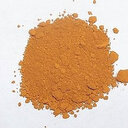Promising features of mango (Mangifera indica L.) kernel oil: a review.
Schlüsselwörter
Abstrakt
Mango kernel contains about 15 % good quality edible oil, that is comparable to soybean and cottonseed, which contain about 18-20 % oil. Mango kernel oil (MKO) has lower free fatty acids, carotenoid content and peroxide value, and is usually used without any processing, which is otherwise mandatory for commercial vegetable oils. Palmitic, stearic and oleic acids are the major fatty acids, triglyceride composition and fatty acid profile suggest wide range of trans free options. With 32-36 °C melting point, MKO is solid at room temperature, thus, does not require partial hydrogenation for application in foods. MKO can be used as an alternative of cocoa butter, which is used in chocolates and confectionaries. Total phenolic contents and induction period of MKO is greater than many commercial vegetable oils; thus, it can be used as an alternative of synthetic antioxidants for the preservation of fats and oils. Mangiferin, chlorogenic acid, quercetin and caffeic acid are the major phenolic compounds present in MKO. Functional properties of MKO can be further improved through fractionation, transesterification and interesterification for increased industrial applications.


